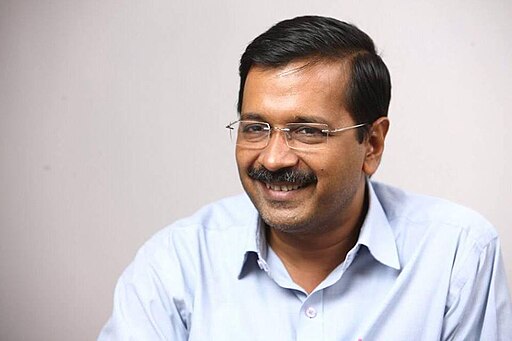Delhi Chief Minister cites urgent medical needs, requests Supreme Court to extend bail by seven days
Delhi Chief Minister Arvind Kejriwal has requested the Supreme Court to extend his interim bail by seven days, citing serious health concerns. Mr. Kejriwal, who is currently under investigation in the Delhi liquor policy case, emphasized the need for comprehensive medical tests following significant weight loss and elevated ketone levels.
The Supreme Court initially granted Mr. Kejriwal interim bail until June 1 to enable his participation in the Lok Sabha election campaign. According to the court’s ruling, he must surrender and return to Tihar Jail on June 2. In light of his health issues, Mr. Kejriwal has petitioned for additional time to undergo necessary medical evaluations, including a PET-CT scan.
Mr. Kejriwal’s legal counsel stressed the urgency of these tests for his well-being and urged the court to consider the extension. Preliminary examinations have already been conducted by Max Hospital’s medical team, which underscores the critical nature of his condition.
The interim bail granted to Mr. Kejriwal has sparked controversy. BJP leaders have accused the Supreme Court of giving Mr. Kejriwal “special treatment,” an allegation the justices involved have denied. They asserted that no exceptions were made in his favor and that the decision was based solely on legal merits.
The Delhi liquor policy case, which has drawn significant attention, involves allegations of irregularities in the formulation and implementation of the excise policy for 2021-2022. The policy aimed to modernize the capital’s liquor business by introducing a more consumer-friendly approach with discounts and offers. However, the investigation, initiated by an order from Delhi Lieutenant Governor Vinai Kumar Saxena, led to the policy’s cancellation.
The Aam Aadmi Party (AAP) has accused Mr. Saxena’s predecessor, Anil Baijal, of last-minute changes that negatively impacted the policy’s revenue projections. The ongoing probe has already seen the arrest of AAP leader and former Deputy Chief Minister Manish Sisodia by the Central Bureau of Investigation (CBI) on February 26 last year. Additionally, Rajya Sabha member Sanjay Singh was arrested by the Enforcement Directorate (ED) on October 5 and subsequently granted bail in April this year.
Mr. Kejriwal’s health concerns have added a new dimension to the case, raising questions about his ability to manage his legal and political responsibilities simultaneously. The Supreme Court’s decision on the bail extension request will be closely watched, as it could have significant implications for both Mr. Kejriwal’s political career and the ongoing investigation.
Analysis:
Arvind Kejriwal’s request for an interim bail extension highlights the intersection of health, politics, and legal proceedings in high-profile cases. The Chief Minister’s health issues, including significant weight loss and elevated ketone levels, necessitate urgent medical attention, which his legal team argues cannot be adequately addressed within the initial bail period.
From a political perspective, Mr. Kejriwal’s health crisis comes at a critical juncture. The Lok Sabha elections are a significant event for his party, the Aam Aadmi Party (AAP), and his ability to campaign effectively could influence voter sentiment. His health concerns may garner sympathy from the public, potentially bolstering his political standing. However, opponents may argue that his condition could hinder his capability to lead, thereby questioning his fitness for office.
Sociologically, the case underscores the pressures faced by public figures in managing personal health while fulfilling public duties. Mr. Kejriwal’s situation highlights the broader issue of the physical and mental toll of political life. The scrutiny and demands on politicians can lead to serious health consequences, raising questions about the support systems in place for public servants.
Economically, the Delhi liquor policy case has significant ramifications. The policy aimed to overhaul the capital’s liquor business, promising a modernized consumer experience. However, the allegations of irregularities and the subsequent investigation have disrupted this vision. The policy’s cancellation has economic implications, affecting businesses and revenue streams associated with the liquor industry in Delhi.
Locally, the controversy has stirred debates about governance and accountability in Delhi. The AAP’s accusations against former Lieutenant Governor Anil Baijal point to political manoeuvring and administrative challenges within the capital’s governance structure. This case highlights the complexities of policy implementation in a politically charged environment.
The case also touches on issues of gender and minority representation. The liquor policy aimed to create a safer, more regulated market, which could have benefited marginalized communities by reducing illicit trade and associated crimes. The ongoing investigation and the political turmoil may delay or derail these potential benefits, impacting vulnerable groups disproportionately.
In conclusion, Mr. Kejriwal’s request for a bail extension due to health concerns is a multifaceted issue with political, sociological, economic, and local implications. The Supreme Court’s decision will not only affect Mr. Kejriwal’s immediate future but also set a precedent for how similar cases might be handled, balancing personal health needs against legal and public responsibilities.
